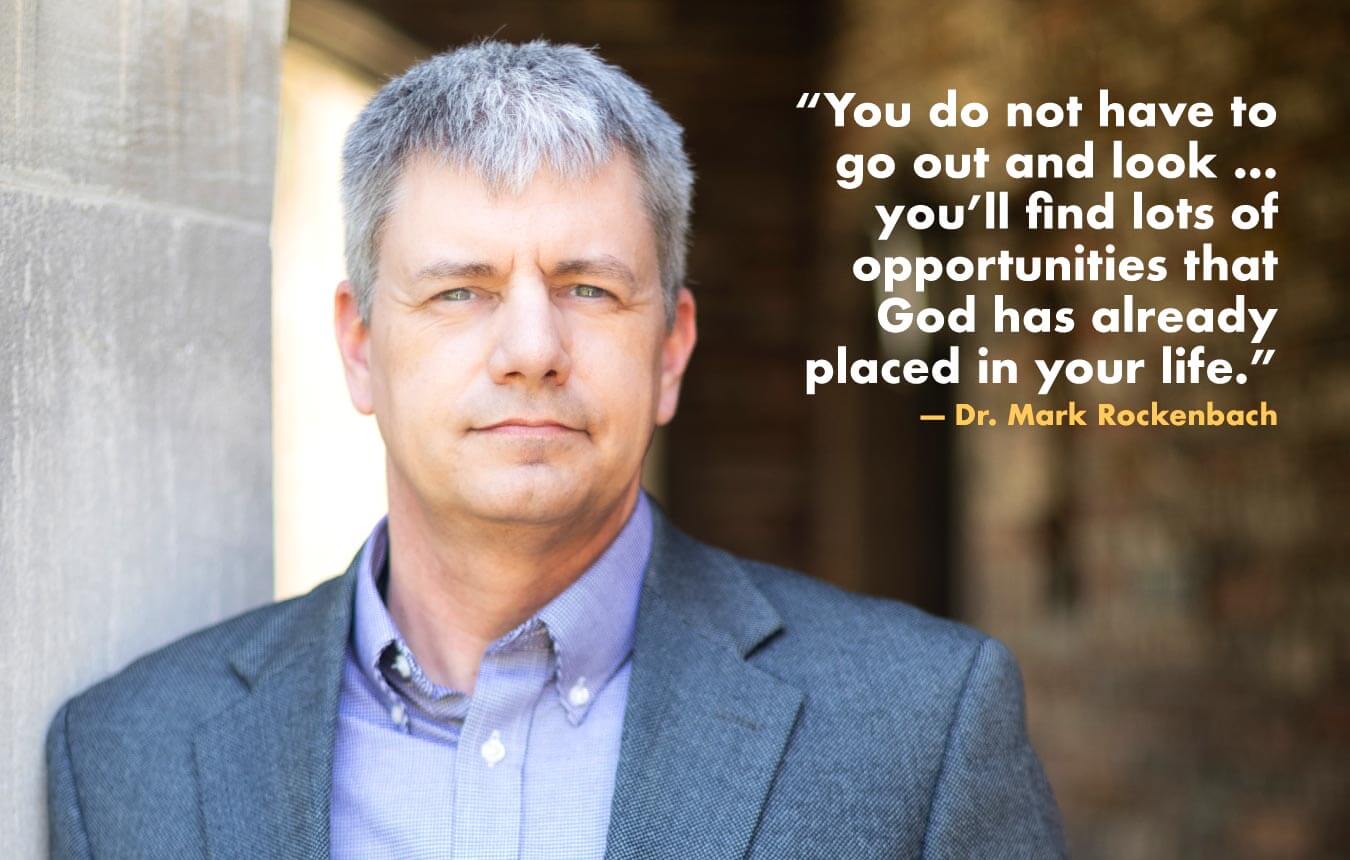
Concordia Seminary Newsroom
Meet Dr. Mark Rockenbach

by Christie Hampton
Can you tell us about your family and where you grew up?
My wife, Darlene, is a kindergarten teacher at Immanuel Lutheran School in St. Charles, Mo. We have three children: Joshua, Rachel and Andrew. My youngest, Andrew, just graduated from high school. We are originally from Nebraska and I’m still not a big city person.
When did you feel the tug to ministry?
I was always interested in helping people and I saw how the church was helping the community. Pastors and teachers in the church saw my interest in wanting to become a pastor and provided me with the opportunities to see what it was like to care for others.
After you received a Master of Divinity in 1998 from Concordia Seminary, you served as sole pastor at First Trinity Lutheran Church in the rural farm community of Beatrice, Neb., for about eight years. How did you end up becoming a counselor?
So many people came to me for counseling, but it was beyond my skills. I referred them to counseling services and later discovered the professional licensed counselors were providing contradictory advice about what I would preach on Sunday morning.
So, I decided I was going to get a counseling degree.
How did you end up back at the Seminary as a faculty member?
A professor of mine said I should become a professor. So, I taught adjunct courses at Concordia University, Nebraska, Seward, and for Concordia University Wisconsin, Mequon. Then I taught in Concordia, Mequon’s counseling program before coming back to the Seminary. That is one thing about ministry: You can have all kinds of ideas about where you want to go and where you want to be. But when God calls, and you think that you can contribute in a significant way in a different place, how can you say no to that?
You also have significant experience in the area of reconciliation. Tell us more.
I worked as the executive for church worker health and reconciliation for The Lutheran Church—Missouri Synod Nebraska District. I would visit and care for the pastors in the district on a regular basis. The idea was to be preventative, to identify issues and coach both parties as the mediator.
As the director of the D.Min. Program, which is now fully online, why should pastors earn this advanced degree?
Pastors are struggling with how to engage people in the Word of God in a godly way in today’s society. The D.Min. Program gives students the skills to apply theology to contemporary issues within their ministry context. Pastors who earn this degree have the opportunity to further their education while remaining in their ministry setting.
You oversee important assessments that help students learn about their strengths and weaknesses so they can better serve in ministry once they graduate from the Seminary. Based on these assessments, students discover which type of “bird” they are — eagle, owl, dove or parrot. What do these descriptions mean and which bird are you?
We use the DiSC assessment to capitalize upon things students may not realize they are good at and identify weaknesses and how they can be improved. The bird names are assigned based on leading personality traits. Eagles are dominant and fast-paced, parrots are influencers and engaging, doves are steady and hold the status quo, and owls are detailed and analytical. I’m a dove and tend to be more introverted than others. Knowing our bird type helps us to better understand the gifts God has given us and how we can complement each other as we do ministry.
Do you have advice for those who are considering a career in ministry?
Find ways you can get involved in ministry and care for people. You do not have to go out and look for things; you’ll find lots of opportunities that God has already placed in your life.
Christie Hampton is a communications specialist at Concordia Seminary, St. Louis.